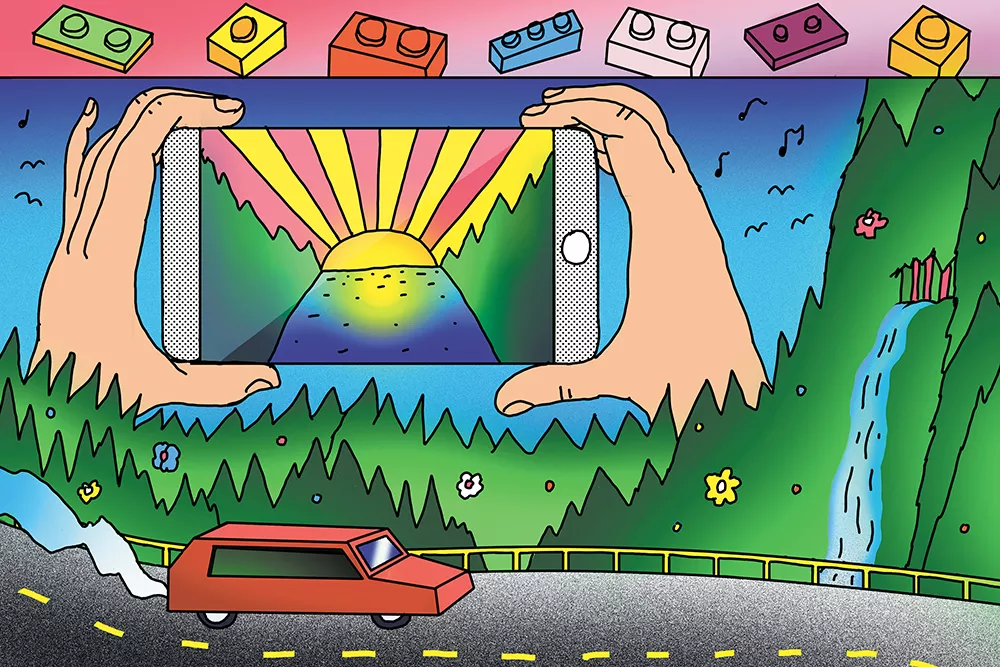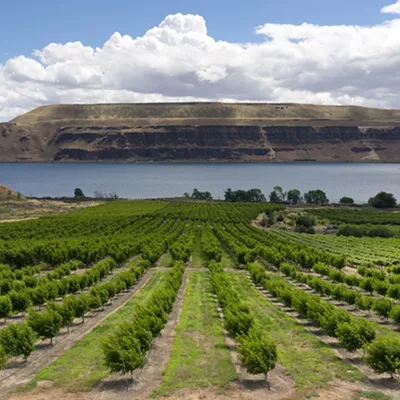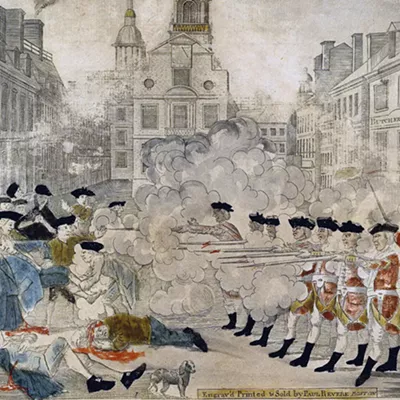For as long as I can remember, whenever I drive on U.S. 95 at Chilco, I take a moment to look at the waterfall. It's easy to miss; it's just a small stream that spills over some rocks behind a farmhouse on the east side of the highway. I guess my parents must have pointed it out when I was a kid. Since then I've made innumerable trips over that stretch of road, coming from or going to Sandpoint. Almost all the most important travels of my life have brought me past that waterfall at some point. It has become a kind of talisman: touched mentally for luck on the way out or in gratitude that I'm almost home.
Of course, you can never go home. Still, we try — especially this time of the year. Like most people, I just wrapped up a season of family visitation. This was the first holiday season we've spent in North Idaho since my son was born in 2012. My daughter, who turns 3 on Jan. 8, had never spent Christmas with her grandparents. My cousin resurrected our traditional Christmas Eve gathering of extended relatives, largely dormant since my grandmother's passing five years ago. While my kids were new additions, my uncle was notably absent — for the first time in my memory not there to pour the hot-buttered rum.
At my parents' houses, the pictures on their fridges reminded me of how fast a decade can pass. In both ritual and remembrance, my son was deemed finally old enough to be introduced to my childhood collection of Legos. I made the mistake of glancing at the dates on the instruction booklets we so meticulously preserved over the years and, while the Legos themselves evoked entire sense memories — songs on the radio, the woodgrain of an old dining room table, the smell of grilled cheese — the dates seemed impossibly remote. How could 30 years have passed since I first built the Black Falcon's Fortress?
Body blows of mortality are par for the course at the turning of the new year, as we consider how our story has developed and in what ways it might end. For some inexplicable, deep-mind reason I've been listening to Nina Hagen's "Du has den Farbfilm vergessen" ("You Forgot the Color Film"), in which she rips her boyfriend Micha for doing as the song title suggests, thus failing to adequately record a day at the beach. Buried not far beneath its poppy veneer, the song is a lament about memory and who controls it in crafting a life story. Forty-four years after "Farbfilm" was released, InfoTrends estimated 1.2 trillion digital photos were taken in 2017 alone. Truly: "Pictures or it didn't happen." Maybe more accurately, amid a global media culture where billions of people gabble simultaneously around the village campfire of the internet: "If it didn't happen, you didn't happen."
Looking back on "post-truth" 2017, which began with the largest presidential inauguration crowd in history that wasn't ("just look at the pictures!") and is ending with censorship in government documents of words like "evidence-based," "science-based," "vulnerable," "entitlement," "diversity," "transgender" and "fetus" — it seems clear this was the Year of Narrative.
Dominated by President Donald Trump, maybe our first true storyteller-in-chief, superlatives stand for ideas and rhetorical flourishes fly to Jerry Bruckheimer heights. Never mind that he's an orange sack of Big Macs with spun butterscotch for hair, we made him president because he sufficiently scared and/or entertained us around that primordial campfire. A year later, the bullshitter son of a shyster father, Trump is writing our national story like it's a treatment for one of his reality TV shows.
Heading into 2018, maybe the most powerful resolution for all of us — from the personal to the societal — is to take greater control of our narrative. We are our stories and if we don't watch carefully, they'll write themselves without us. ♦
Zach Hagadone is a former co-publisher/owner of the Sandpoint Reader, former editor of Boise Weekly and current grad student at Washington State University.


















